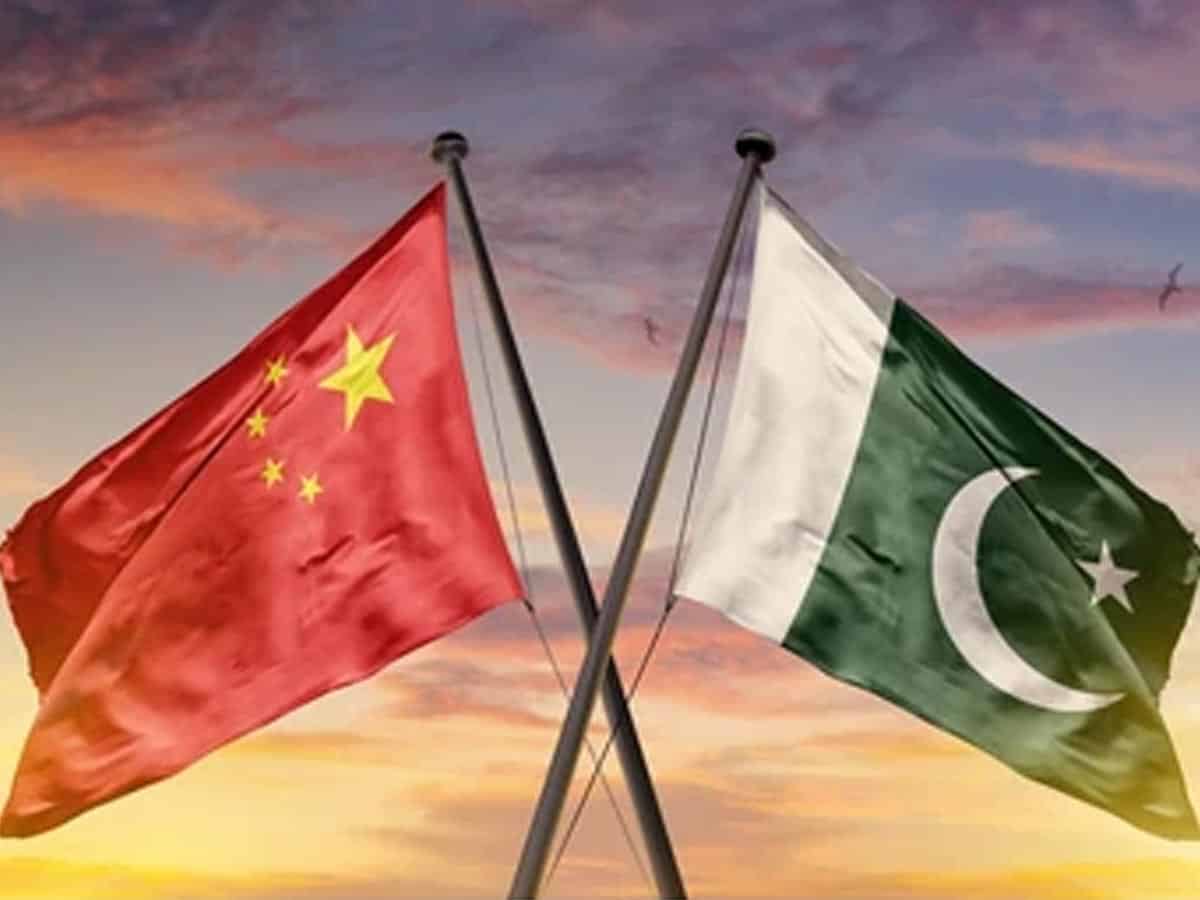
Islamabad: Pakistan and China have inked 20 agreements and MoUs during the maiden visit of interim Prime Minister Anwar-ul-Haq Kakar to enhance cooperation under the Beijing-backed Belt and Road Initiative, according to a joint statement issued on Friday.
Kakar visited China from October 16 to 20 and attended the Third Belt and Road Forum for International Cooperation at the invitation of Chinese President Xi Jinping. During his stay in China, Kakar met President Xi, Premier Li Qiang and other top leaders.
The two sides recognised that the China-Pakistan Economic Corridor (CPEC) as a pioneering project of the BRI, has yielded fruitful outcomes in the 10 years since its inception, and has now entered a new stage of high-quality development.
India has been severely critical of the Belt and Road Initiative (BRI) as the project includes the so-called China-Pakistan Economic Corridor (CPEC) that passes through Pakistan-occupied Kashmir.
During the visit, the two sides signed 20 agreements and MoUs, covering cooperation on the BRI, infrastructure, mining, industry, green and low-carbon development, health, space cooperation, digital economy, development cooperation and export of agricultural products to China, the joint statement said.
The Pakistani side briefed the Chinese side on the situation in Jammu and Kashmir, the statement said.
India has in the past criticised China and Pakistan for their unwarranted references to the Indian Union Territory of Jammu & Kashmir.
The Union Territory of Jammu & Kashmir and the Union Territory of Ladakh are and always will be integral and inalienable parts of India. No other country has a locus standi to comment on the same, the Ministry of External Affairs said when China and Pakistan issued a joint statement in November last year.
China and Pakistan, the two all-weather friends, reaffirmed their support for each other on issues concerning their respective core interests and major concerns, with Pakistan giving commitment to the one-China Principle and that Taiwan is an inalienable part of China’s territory.
Pakistan also firmly supported China on issues concerning the South China Sea, Hong Kong, Xinjiang and Xizang, the statement said.
“The Chinese side reiterated its support for Pakistan in safeguarding its sovereignty, national independence and territorial integrity, in pursuing a development path of economic stability suited to Pakistan’s national conditions, in fighting terrorism, and in playing a bigger role in regional and international affairs,” it said.
“Both sides reiterated their resolve to make Gwadar a high-quality port, a regional trade hub and a connectivity node,” it said.
The China-Pakistan joint statement also referred to their close cooperation in the defence sector.
“Underscoring that stronger strategic defence and security cooperation between China and Pakistan is an important factor of peace and stability in the region, the two sides agreed to maintain high-level military-to-military visits and exchanges and deepen cooperation in areas of training, joint exercises and military technology,” it said.
The two countries also expressed deep concerns over the current escalation of tensions and violence between Palestine and Israel, and called for an immediate ceasefire and cessation of hostilities, it added.
